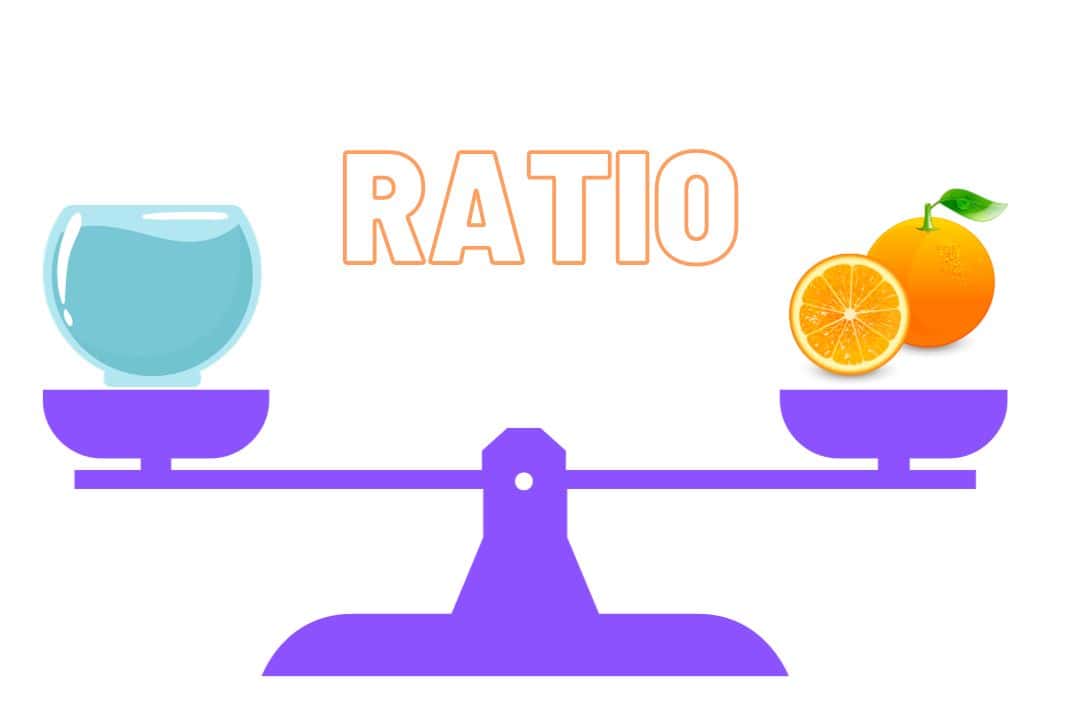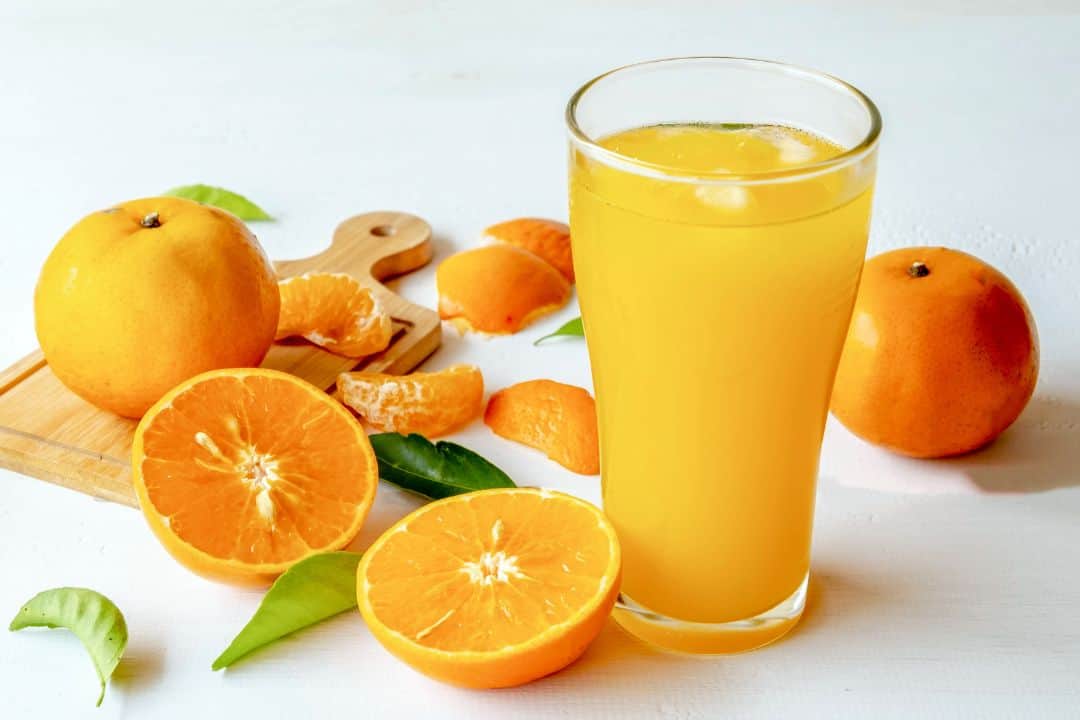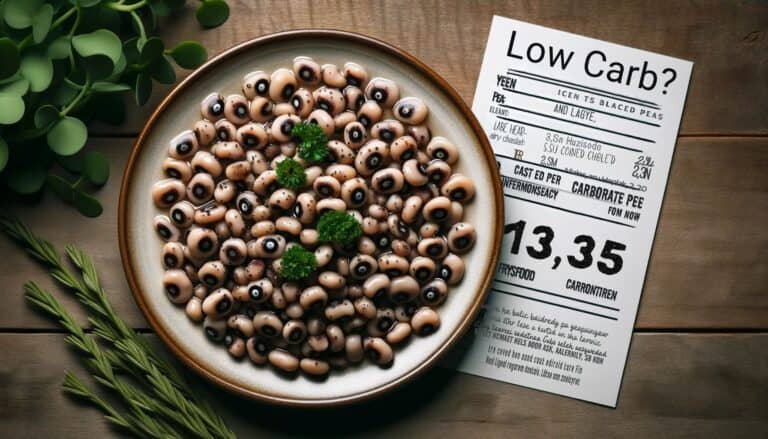Do You Add Water When Juicing to Dilute Fruit Recipes
Do You Add Water When Juicing?” is among the most common questions people have when they embark on their juicing journey. The answer varies depending on a few factors, including the type of juicer you’re using and the desired taste of your juice.
For those using traditional juicers that operate at high speeds with high-speed blades, the juice can sometimes taste bitter due to the friction and heat. Adding a little water can help dilute the intense flavors, giving a more palatable result.

On the other hand, with a cold-press or slow juicer, which extracts juice by pressing fresh produce at a much slower pace, there’s often no need to add water.
The main difference here is that cold-pressed juices retain a lot of nutrients, capturing the total nutritional value of a juice without compromising its flavor.
Another factor to consider is the type of fruit or vegetable you’re juicing. Watery fruits like watermelon or cucumber might not require any additional water.
But when crafting a healthy green juice, mainly concentrated with green vegetable juice or strong celery juice flavors, a splash of fruit juice or even a cup of water might be the best solution to balance the taste.
Lemon juice is an excellent way to add vitamin C and a zesty flavor without too much sugar, which can spike blood sugar levels.
For those looking to enhance the nutritional value of their juice further, coconut water is a fantastic option. It’s packed with essential minerals and can be a great addition to any green juice recipe.
On days when you want your juice to be more of a healthy drink, less concentrated, and more like something you’d find at juice bar franchises, adding a little water or even ice cube trays filled with your favorite green drink for later use can be beneficial.
Weight loss enthusiasts often prefer their juices more concentrated, believing it’s good to consume them on an empty stomach for maximum benefit to the digestive and immune systems.
However, limited scientific evidence supports the idea that drinking juice without water is better for weight loss.
Buying juices from the grocery store are often labeled as “100 percent juices.” But even these can sometimes contain a little water to adjust the flavor or volume of your juice.
If you’re making your juice at home using whole foods and a high-speed blender, passing the blend through a fine mesh strainer or nut milk bag can provide a smoother texture, and then you can decide on the amount of juice or water to add.
This is an easy way to customize your favorite drink.
In conclusion, the best way to decide whether to add water when juicing is to consider the equipment you’re using, the flavor and nutritional values you aim for, and personal preference.
While some might find that adding a little water or even a splash of fruit juice enhances the taste and volume of your juice, others might prefer their juice straight from the cold press juicer.
The important thing is to enjoy your healthy juices, knowing that you’re giving your body a boost with every glass of drink.
The Benefits of Diluting Juice with Water
Maintaining Hydration Levels
One of the critical benefits of diluting juice with water is that it helps maintain hydration levels. While fruit juices can be refreshing, they may not provide enough hydration.
Adding water to your juice increases its watery content, making it more effective in quenching your thirst and replenishing lost fluids.
When you dilute fruit juice with water, you create a beverage that is not only flavorful but also hydrating. This is especially important during the hot summer months or after engaging in physical activities that cause excessive sweating.
Ensuring adequate hydration supports various bodily functions, such as regulating body temperature and aiding digestion.
Reducing Calorie Content
Another advantage of adding water to your juice is that it reduces the overall calorie content of the beverage. While fruits are undoubtedly nutritious, they can also be high in natural sugars.
By diluting the juice with water, you lower its sugar concentration and decrease calorie intake.
For those watching their weight or trying to maintain a healthy lifestyle, diluting fruit juice can be an excellent strategy. It allows you to enjoy the fl’ flavors and health benefits while keeping calorie consumption in check.
Moreover, substituting sugary beverages with diluted juices can contribute to weight management efforts and reduce the risk of obesity and diabetes.
Enhancing Palatability
Adding water to your fruit juice can make it more palatable for individuals who find it too sweet or overpowering in flavor. Some fruits naturally contain higher sugar levels than others, resulting in a sweeter taste profile for their juices.
Dilution helps balance out this sweetness by reducing its intensity without compromising flavor.
Adjusting the sweetness level through dilution allows you to tailor your juice to suit your preferences. This makes it easier for individuals sensitive to overly sweet tastes or those who prefer a milder flavor profile.
Diluted juices can be an excellent option for introducing fruits to children who may find the concentrated flavors too strong.
Determining the Appropriate Water-to-Fruit Ratio

They are finding the proper water-to-fruit ratio when juicing is crucial to achieving the perfect balance of flavors. The ideal ratio largely depends on personal preference, as some individuals prefer a more concentrated fruit flavor, while others enjoy a lighter and more diluted taste.
Experimenting with different ratios allows you to discover your desired level of sweetness and intensity.
Starting with small amounts of water is recommended. This way, you can gradually increase the water content until you are satisfied with the taste. Doing this gives you better control over how much watering down occurs.
Adding too much water can dilute the natural sweetness of fruits and may produce less flavorful juice. On the other hand, not adding enough water could make the juice too thick or overpoweringly sweet due to the high sugar content in certain fruits.
It’s important to consider that adding water also affects the nutritional composition of your juice. While fruits provide essential vitamins and minerals, they also contain natural sugars. Diluting fruit juices with water can help reduce overall sugar intake without compromising flavor.
Moreover, adjusting the amount of water used in juicing can also impact fiber content. If you prefer a higher fiber intake, reducing the amount of added water will retain more fiber from fruits during the juicing process.
The type of juicing device you use may also influence how much water you need to add. Some machines extract juice efficiently without requiring additional liquid, while others may require small amounts for optimal operation.
Every individual’s body processes liquids differently. Factors such as hydration levels and personal preferences play a role in determining how much watering down is needed for an enjoyable drinking experience.
To summarize:
- Start by adding small amounts of water.
- Gradually increase until satisfied with the taste.
- Consider sugar content and nutrition when adjusting ratios.
- Be mindful of fiber content and adjust accordingly.
- Take into account the type of juicing device being used.
- Personal preference and the body’s response to liquids are vital factors.
By experimenting with different water-to-fruit ratios, you can tailor your juice to suit your taste buds while maintaining a balance between flavor and nutrition.
So, grab your favorite fruits, adjust the water content as needed, and enjoy a refreshing glass of homemade juice that perfectly suits your preferences!
Tips for Diluting Orange Juice Without Sacrificing Flavor
Use Freshly Squeezed Orange Juice for Best Results

Starting with fresh orange juice is vital. Freshly squeezed oranges ensure you get the most flavor and nutrients from your fluid. Store-bought juices may contain additives or preservatives that can alter the taste when diluted.
By squeezing your oranges, you control the quality and freshness of the liquid.
Add Cold, Filtered Water Slowly While Stirring Gently to Preserve Flavor
To dilute your orange juice without sacrificing flavor, it’s essential to add water gradually and stir gently. This method helps maintain the integrity of the flavors while ensuring a well-balanced beverage.
Start by pouring cold, filtered water into your freshly squeezed orange juice. Stir slowly to combine the liquids, allowing them to blend harmoniously. Taste as you go and continue adding water until you reach your desired level of dilution.
Adjust the Dilution Level Based on Sweetness and Acidity Preferences
Everyone has different preferences. Some prefer a sweeter taste, while others enjoy a more tangy flavor. When diluting orange juice, take these preferences into account and adjust accordingly.
If you like a sweeter profile, use less water during dilution. On the other hand, if you prefer a more acidic taste, increase the amount of water added gradually until you find your ideal balance.
Finding the perfect dilution level might require trial and error based on personal preference. Remember that there’s no right or wrong answer here; it depends on what suits your taste buds best.
The Right Way to Dilute Apple Juice for a Refreshing Drink
Choose the Perfect Apples for Juicing
Selecting a suitable variety is crucial. Crisp apple varieties like Granny Smith or Honeycrisp work exceptionally well due to their tartness and balanced flavor profile. These apples provide a refreshing base for your juice, ensuring a delightful taste experience.
Mix in Chilled Sparkling Water
If you want to add a fizzy twist to your apple juice, mixing it with chilled sparkling water is a great way to achieve that desired effervescence. Simply combine equal parts of apple juice and sparkling water in a glass, gently stirring them together.
The bubbles from the sparkling water will dance on your taste buds, enhancing the overall drinking experience.
Enhance with Fresh Mint Leaves or Citrus Slices
Consider garnishing your diluted apple juice with fresh mint leaves or slices of citrus fruits.
Mint leaves bring a calm and refreshing element to the drink, while citrus slices like lemon add a zesty tanginess that complements the natural sweetness of the apples. Experiment with different combinations and find your perfect balance of flavors.
Enjoy Your Apple Juice on Ice
For an extra chill factor, serve your diluted apple juice over ice cubes. Not only does this keep your drink refreshingly cold, but it also adds visual appeal with glistening cubes floating amidst the liquid gold.
The ice cubes also help maintain the temperature as you savor each sip.
Press Your Apple Juice for Optimal Flavor
If you can access fresh apples and want to take your juicing game up, consider pressing your apple juice at home. This allows you complete control over the quality and flavor of your beverage.
Invest in a reliable juicer or use traditional methods like manually pressing apples through cheesecloth or a fruit press. The result will be a truly authentic and delicious apple juice that you can dilute according to your preferences.
Let the air work. It’s Magic.
When diluting apple juice, it’s essential to let it sit for a few minutes before serving. Allowing the liquid to come into contact with air helps the flavors meld together, creating a more harmonious taste.
This brief exposure period enhances the drinking experience and ensures every sip is as enjoyable as possible.
Does Adding Water Affect the Nutritional Value of Juice?
One common question is whether adding water to dilute fruit recipes affects the nutritional value of the juice. Let’s delve into this topic and explore how dilution may impact the nutrient concentration in your freshly squeezed juices.
While dilution may slightly lower the nutrient concentration, it remains beneficial overall. The body still readily absorbs Essential vitamins and minerals in diluted juices. Here’s why:
- Enhanced Hydration: Adding water to your juice increases its volume and boosts hydration. Staying hydrated is crucial for maintaining overall health, as water is vital in various bodily functions.
- Balanced Flavor: Some fruits can be overpowering in their natural state, making them difficult to consume in large quantities. You can achieve a more balanced flavor profile by diluting such juices with water without compromising nutritional benefits.
- Gentler on Digestion: Concentrated fruit juices can sometimes lead to digestive discomfort, especially for individuals with sensitive stomachs or gastrointestinal issues. Diluting these juices with water can make them easier to digest while providing essential nutrients.
- Calorie Control: Diluted juices have a lower calorie content than their concentrated counterparts. If you’re watching your calorie intake or trying to manage your weight, diluting fruit juice with water allows you to enjoy its refreshing taste while reducing overall calorie consumption.
- Improved Absorption: While some nutrients may be slightly diluted when adding water, they are still readily absorbed by the body during digestion. Additional liquid can even facilitate better absorption of specific vitamins and minerals.
- Customization Options: Diluting juice with water allows customization based on personal preferences and dietary needs. You can adjust the level of dilution according to taste preferences or specific health requirements.
- Cost-Effective: Diluting fruit juice with water can stretch your ingredients further, making it a more cost-effective option. This is especially useful when fruits are expensive or not readily available.
Making Green Juice: Blender vs. Juicer
Blending green ingredients with water creates a smoothie-like texture rich in fiber.
There are two popular methods: using a blender or a juicer. Each method has its advantages and considerations. Let’s explore the differences and determine which suits your needs.
Blender: Fiber-rich Smoothies
Blenders are versatile kitchen appliances used for various purposes, including making green juice. When you use a blender to make green juice, you blend the vegetables and fruits with water.
This creates a smoothie-like consistency that retains the fiber content of the ingredients.
One of the main benefits of using a blender is that it allows you to consume whole fruits and vegetables, including their skins and seeds. This means you get all the nutrients and dietary fiber in these parts, promoting better digestion and feeling full.
To make green juice with a blender, follow these steps:
- Gather your favorite green ingredients, like spinach, kale, or other leafy greens.
- Wash them thoroughly to remove any dirt or impurities.
- Chop them into smaller pieces for more effortless blending.
- Add water to your blender along with the chopped greens.
- Blend until you achieve a smooth consistency.
- Strain the mixture through a fine-mesh strainer to remove any pulp or fibers.
Blenders come in different types, but high-speed blenders are typically recommended for making green juice as they can easily break down tough vegetables and fruits.
Juicer: Concentrated Nutrients
Juicers extract liquid from fruits and vegetables while separating the pulp and fibers. This process allows for concentrated nutrient extraction without the added bulk of fiber in blended juices.
There are different types of juicers available on the market:
- Centrifugal juicers: These juicers use high-speed spinning blades to extract juice from the produce. They are generally more affordable and work well with most fruits and vegetables.
- Press juicers: Also known as masticating or cold-press juicers, these machines operate slower, crushing the ingredients to extract the juice. They are often preferred for leafy greens and vegetables.
When using a juicer, you may need to add liquid to dilute the extracted juice if it becomes too concentrated. This can be done by blending the extracted juice with water in a blender or adding water directly.
Finding the Perfect Balance in Diluted Fruit Juices
Now that you understand the benefits of diluting your fruit juices with water and have learned how to determine the appropriate water-to-fruit ratio, it’s time to implement this knowledge.
Cutting orange juice without sacrificing flavor can be achieved by gradually adding small amounts of water until you reach your desired taste. Remember, it’s all about finding that perfect balance between sweetness and dilution.
Similarly, when diluting apple juice for a refreshing drink, pour a small amount of water into your glass and then slowly add more until you achieve the right level of dilution.
This method allows you to customize your drink according to your preference. By taking these steps, not only will you enjoy a lighter and more hydrating beverage, but you’ll also retain most of the nutritional value found in the original fruit juice.
So, experiment with different ratios until you find what works best for you. Don’t be afraid to get creative and mix other fruits or even make green juice using a blender or juicer. The possibilities are endless!
FAQs – Do you add water when juicing?
Can I use any water to dilute fruit juices?
👉 Yes, you can use any drinking water to dilute fruit juices. Whether tap water, filtered water, or even mineral water, as long as it is safe for consumption, it can be used in dilution.
How much should I dilute my fruit juices?
👉 The amount of water needed to dilute fruit juices depends on personal preference. Add small amounts of water and gradually increase until you achieve the desired taste. It’s all about finding that perfect balance between sweetness and dilution.
Will adding water affect the nutritional value of my juice?
👉 While slight changes in nutrient concentration may occur due to dilution with water, most of the nutritional value will remain intact. Diluting your fruit juices can make them more hydrating and easier to digest.
Can I dilute store-bought fruit juices?
👉 You can dilute store-bought fruit juices to reduce sweetness and create a lighter beverage. Follow the same process of gradually adding water until you achieve your desired taste.
Are there any fruits that should not be diluted with water?
👉 Generally, most fruits can be diluted with water without any issues. However, some fruits like grapes or berries naturally have a higher water content, so dilution may not be necessary. It’s ultimately up to personal preference and taste.

Born and raised in a family of foodies, Georgia’s passion for cuisine was nurtured from a young age as she learned the intricacies of flavor and texture from her grandmother’s kitchen. As an adult, this early fascination blossomed into a full-fledged love affair with the culinary world.







